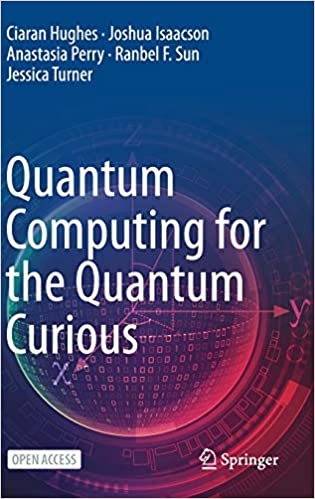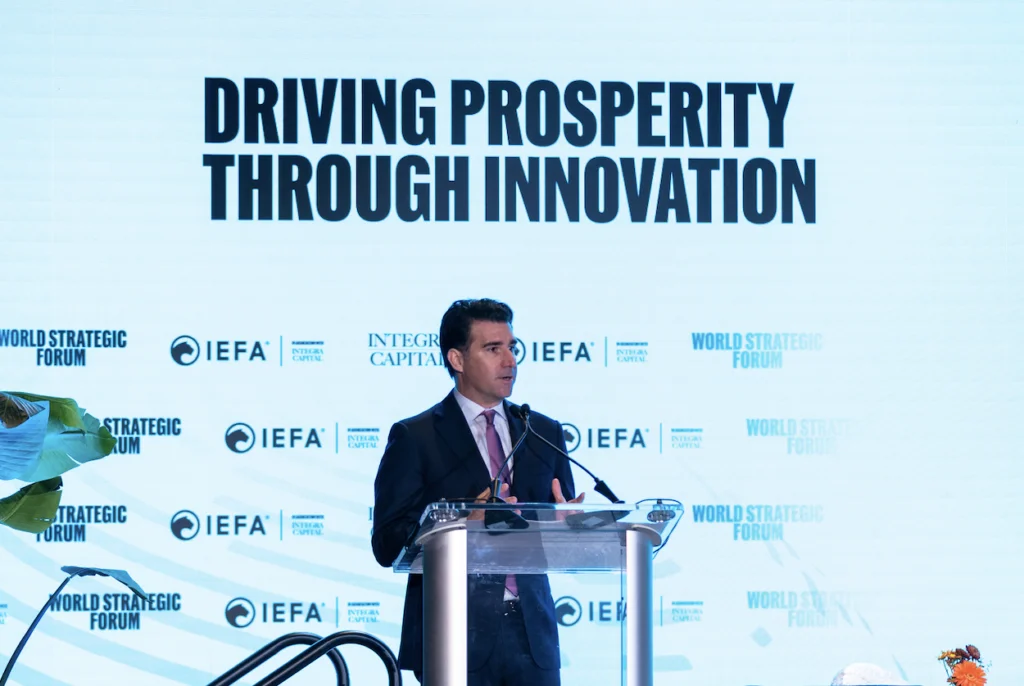Hot New QC Ed Book! 55k Free Downloads and Counting (Thanks, IBM)
Discussion with Ciaran Hughes and Ranbel Sun, on the book: Quantum Computing for the Quantum Curious
Book Publish Date: March 23rd, 2021
Discussion in this article may be of interest to: QC Ed learners, government folk, educators, administrators, K-PhD


Ciaran Hughes
Research Associate at Fermilab
Ranbel Sun
Technical Writer/Instructor, United Electronic Industries, Tech Curriculum Writer at Fermilab
(For profiles of all five authors, see Amazon page)
Todd’s Note:
- FREE: Thanks to IBM there’s a free version, 55,000 downloads and counting
- TIP: Let your school system know: schools like free, some students can only afford free; let your college or university know, ask them to develop courses in quantum computing if they don’t already have them . . .
- TV/YOUTUBE PEOPLE: perhaps a network out there might like to help quantum industry development by interviewing one or more of these authors . . . ::nudge nudge::
Excerpt of official book profile:
A fast-growing field at the intersection of physics and computer science, quantum computing promises to have revolutionary capabilities far surpassing “classical” computation. Getting a grip on the science behind the hype can be tough: at its heart lies quantum mechanics, whose enigmatic concepts can be imposing for the novice. This classroom-tested textbook uses simple language, minimal math, and plenty of examples to explain the three key principles behind quantum computers: superposition, quantum measurement, and entanglement. It then goes on to explain how this quantum world opens up a whole new paradigm of computing.
Q: What is the most important thing you want people to know about the book?
CH: The book bridges the gap between popular science articles and advanced undergrad books, so it’s perfect for high school students, college students, and the general public who want a gentle introduction to the wonders of quantum.
RS: If you want to get the most out of the book, don’t skip the exercises! Students who have gone through the materials say that the exercises are the most useful (and fun!) part.
Q: What was your favorite part about the process?
CH: Working with Anastasia and Ranbel to create this, and then for the end product to be used in classrooms which has real life positive impact (increase enthusiasm for STEM).
RS: I enjoyed the process of figuring out how to break down a complex subject into a digestible format. It was also nice having the creative freedom to use a more “casual” tone for the book.
Q: The material is refined through you actually teaching the material, right?
CH: The results of our teaching in classrooms is available in our publication (https://arxiv.org/abs/2004.07206) to appear in “The Physics Teacher”. We have refined the material after each round of teaching and feedback.
RS: Yes, Anastasia and I used the materials with students in grades 10-12. The trial runs helped identify pain points and clarify the relative difficulty of different topics. The book labels the material by difficulty so that teachers can more easily tailor the content to their students.
Q: What were the most typical types of questions that students would ask or have trouble getting their understanding of? Tricky math and quantum mechanics?
RS: As is the case in a typical physics class, students find the abstract concepts to be much harder than the math. Students have been learning math procedures since Kindergarten, but quantum concepts are completely new and unintuitive. Entanglement was particularly challenging to understand.
Q: Are there any typical resources that you found helpful to point people to for “refresher” work, such as books, games or courses? Khan Academy, 3Blue1Brown, IBM material, Khan Academy?
RS: Khan Academy is great for refreshing math skills such as probability and basic linear algebra.
CH: We also have appendices that give the basic probability and linear algebra for readers that need this knowledge. No real prerequisites are needed.
Companion site: http://drciaranhughes.com/education.html
Q: For students and/or adult learners who don’t have a background in physics or linear algebra, what do you think is the best way for an individual or school/college/company to bring people up to speed? Are there any certifications you know of that can be an assessment milestone or basis for clear prerequisites but then the means to develop and demonstrate competency? Do you think there is a need for one?
CH: anyone doing work on a quantum computer is going to need linear algebra, including quantum developers, hardware, etc. Basic physics is likely needed, but there are some ways around this. The only way people will not need linear algebra or physics in the quantum industry are for sales or business people. There is not much need to bring them up to speed, but a broad gentle intro like ours would help them understand the tech better to improve their domain knowledge. This is a new field and there are no certificates or masters conversation courses which are known to be sought for. It’s just too new.
Q: What would 1-2 of the most effective exercises/games in the material be that help students to gain understanding of the concepts?
RS: The IBM-Q exercises are great for making quantum computing “real” to students. The exercises are easily modified to accommodate students of different levels. Those who wish to go further can advance to the material on IBM’s website.
Q: Do you think it is realistic for learners to gain mastery of prerequisites and material on their own, or that assistive facilitation results in the strongest learning outcomes?
RS: This really depends on the individual learner. It is definitely possible to self-study, but the biggest challenge is the lack of feedback and ability to ask questions. In general, the learning process is more efficient when there is a teacher (and to a lesser extent, peers) to discuss the material with.
CH: Teachers are invaluable in learning outcomes, which is the reason every country and culture historically has teachers: they’re necessary. It’s only a small subset of (young) people have the inherent attributes or resources needed to learn consistently without external help. The rest of us needed external help to gain mastery.
Q: Do you think there is a need for more exploration on pedagogy and exercises to help learners from diverse backgrounds/ages to gain understanding through non traditional delivery? Ex: anyone with math anxiety?
RS: I don’t think you necessarily need “non traditional delivery” to reach different demographics. Every year there is a new “game-changing pedagogy” being advertised in professional development seminars, but its efficacy is always highly situational. Instead of reinventing the wheel, scaffold the material appropriately and provide a supportive learning environment. As students bridge skill gaps, their confidence will grow and the learning process becomes self-reinforcing.
CH: Agreed
Q: Some believe that one barrier for quantum computing is when someone is raised with classical thinking, and that “quantum thinking” is needed. Do you think that the material out there that has largely been developed from the physics community is sufficient and that people should realistically be prepared to adapt to the mode and method of delivery (ex: amount of abstract notation), or that more work needs to be done to “translate” material to reach a wider audience?
CH: As quantum is a fundamentally physics concept, if someone wants a deep knowledge they need to know the physics. However, if a person just wants to use quantum phenomena in order to produce something, then they do not need to know the physics. For example, a chemist might not need to know a lot of the mathematics of entanglement, or a developer might not need to know how the quantum computer is built. Some material to achieve these tasks are being built.
Q: What kinds of opportunities do you think may exist for someone who doesn’t have a science or math background but is willing to learn. Let’s say that there may be applications being developed where people can use algorithms and hardware without necessarily designing it. What is your viewpoint on this issue? How far and wide do you think that the net can be cast in terms of age and background to empower participation and innovation?
CH: Because this is a new field, only those with specialised domain knowledge will be able to have an impact. This necessarily means having at least a master’s is some field, and some broad understanding of quantum at a minimum. If someone has a masters in data science and wants to learn some quantum, they can likely get a job in the quantum industry. However, its unlikely someone outside of sales/business will be able to break into the quantum industry without a science/math background.
Q: What is the best way in your opinion to encourage more girls and women to learn quantum computing? What kinds of opportunities do they need and where does the encouragement need to come from?
RS: Have plenty of introductory programs/classes with minimal required prerequisites and costs. Give girls the opportunity to discover that they can be good at quantum computing, and they will be more likely to pursue it further. It’s helpful if the programs are for girls only. Speaking from personal experience, it can be intimidating being the only girl in a class of boys who all seem to know the material already (whether or not it’s actually true).
Q: How would you recommend that a school/college/country without significant expertise in quantum pursue joining the revolution? Do everything they can to build STEM education, or take an interdisciplinary approach to equip business students and professionals for example, with the ability to use vs design?
CH: It really depends on what they want to achieve. As a set of actions depends very much on what outcome they want. It’s not as straight forward as saying “do all STEM” as that might not give the outcome they want. Largely I would say provide people (admins/teachers/students) opportunities to be successful at their interests/passions, and the rest will likely follow.
Q: Anything else you would like readers to know? Or perhaps the biggest insight coming from refining the book and material based on things you learned from interacting with students? Or just some effective way you have seen to convert discouragement or intimidation into excitement and sustainable learning?
RS: I would try not to set the bar too high for first-time learners. When learning a new complex subject such as quantum computing, it’s unrealistic to develop deep understanding in a week. I am happy if students walk away with some new vocabulary and a general sense of core ideas. Just knowing the language of quantum computing will make future learning attempts so much easier!
CH: Do what you find interesting, and keep doing that! Stick with it, do the exercises, and work on the real IBM quantum computer. Quantum is confusing at first, but you just have to hear the words enough times that it starts to become “normal”, then all of a sudden you’ll say “wow, I get it now!”.
Q: What would you say to a person or school who says: “I’m too old, too young, I am not a scientist, I don’t have the resources?” How should society respond?
CH: I would say you’re only too old/young if you think you are. The only thing stopping you is opening the book and reading, then googling anything you find confusing.
Q: If someone starts reading your book and then finds it too difficult, where would you send them for inspiration and to make progress so they come back and make the journey?
CH: There is no other resource out there that I know which does what we do. Our book is supposed to be the accessible one. If it’s too difficult, it’s likely needed to understand more basic high school science courses, and coming back.
Extras
Ciaran is fun. Here’s more about Ciaran.

Excerpt of Ciaran Hughes’ profile (primary author):
I am currently a Research Associate in the theory group at the Fermi National Accelerator Laboratory (Fermilab), which is America’s premier particle physics laboratory. I was a C.H.E.S.S (Cambridge Home and European Scheme) Scholar completing a PhD in Theoretical Physics at the Department of Applied Mathematics and Theoretical Physics in the University of Cambridge.
Links:
It is possible to buy the book: (@Springer, @Amazon), have your employer purchase, ask your school, university or local library to purchase.
Grounding in high school physics may be helpful, but there are many free resources online for self study, including some free material from MIT: https://ocw.mit.edu/high-school/physics/
Profile site for Ciaran Hughes: http://drciaranhughes.com/
If you found this article to be informative, you can explore more current quantum news here, exclusives, interviews, and podcasts.
















